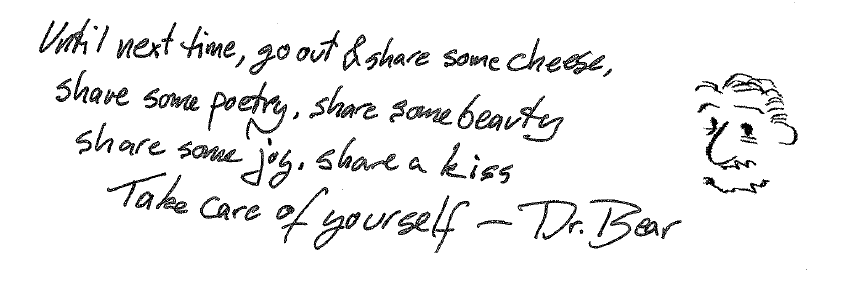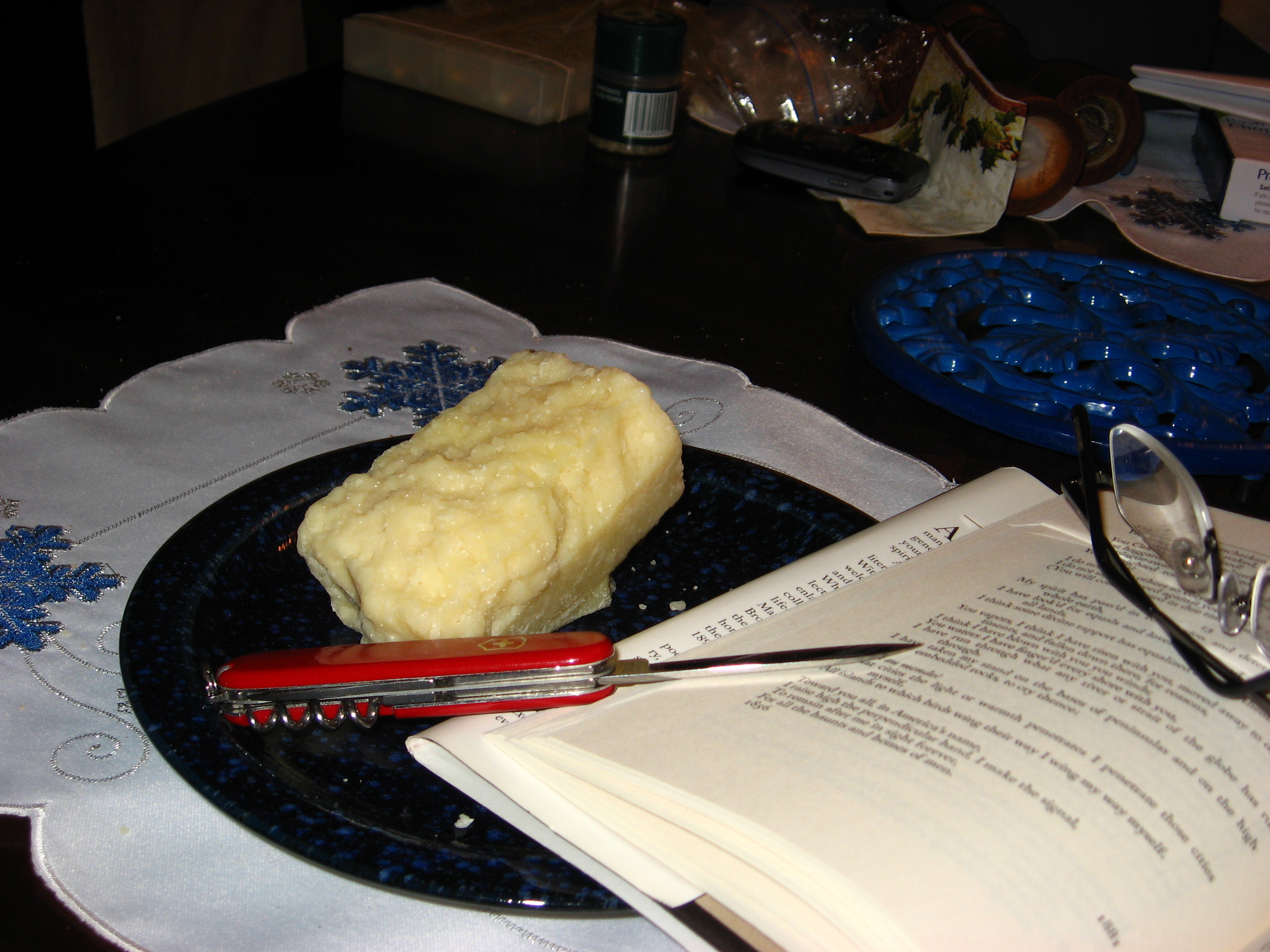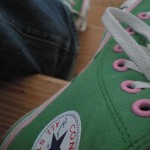The last time I taught Plato, my students picked up on a passage I had never really paid any attention to before. In the third book of the Republic, Socrates and his listeners are discussing a hypothetical community (a Greek polis, or a republic, or a metaphor for the soul). Socrates is building this hypothesis from the ground up, and trying to keep it simple. Glaucon, with whom he is arguing, objects: “No luxuries?” Socrates responds “I forgot; they’ll have salt and oil and cheese and figs, country herbs and acorns to roast by the fire.” Glaucon objects passionately, arguing that they will need real luxury goods, like imported sauces, fine furniture and concubines.
My students were kind of fascinated by the idea of there being an argument about what members of a community need to spice up their meals. I was fascinated by the idea that this argument came at an earlier point in a book that ends with Socrates exiling the poets because they couldn’t be trusted to tell the truth. Even Socrates, however, recognizes that we can’t just live on wheat and barley cakes; we need salt and olive oil, herbs and figs, and cheese.
There is nutrition, the need to just get something eaten in order to keep going, but there is also food that delights and amazes and makes everything better, food that is an experience in itself, food that makes you just want to stop and be in that moment and find joy in what you have just encountered.
For me, that is often cheese.
Cheese.
It does something that is simply remarkable. It is all produced in a very similar way—cow, goat or some other kind of milk—but it varies from country to country, region to region, and each is remarkable and wonderful in its own way.
The sharpness and character of a Sharp Cheddar, or the similar but different flavor of Red Leicester, the creaminess but surprising oddness of a Roquefort, the mellow smoothness but complex nuttiness of a firm Emmentaler, the rich butter taste of a Gouda or a Havarti, the smooth roundness of fresh Mozzarella as it complements the freshly sliced tomato, the sharp leaves of basil and the rich olive oil.
Each experience is more than just something to eat; it is something remarkable. It is joy condensed into a physical experience.
This experience might be a different food for you, but for me, it is cheese.
This experience is also of a form of beauty.
Beauty.
I am not sure I can define it, but I find it constantly, and it is one of my great joys, one of the things that keeps me going. As I usually do when I can’t quite explain something, let me tell you a story.
A few years ago, a dear sweet man whom I admired and loved passed away. No, this isn’t that kind of a story; Earl had lived a very long, very full life, was surrounded by a huge loving family, was well thought of by most who knew him, was at peace with his world and his God, and so his passing on was not too tragic. All death is a sadness for those left behind, but he had not left a legacy of ghosts and wounds, but of love and love, and of music, so we celebrated his funeral with mixed sadness and joy.
At the funeral, one of his sons played the violin in tribute to his father, accompanied by his wife. They are both professional musicians, and incredibly talented, but what they produced was remarkable.
They played Ralph Vaughan Williams’ The Lark Ascending.
For just one moment, time stood still.
That one moment I sat in awe.
It was too wonderful for words, a sensation too beautiful for thoughts.
The sounds around me were joy in the middle of sadness condensed into a physical experience.
I do not know much about larks. I do not know anything about souls or heaven.
But at that moment, I understood Earl’s soul rising to heaven,
like a lark ascending.
We live in a world of pain, but even more, a world of bleak grayness.
We need beauty.
We crave and we create beauty great and small, huge joys and little ones; we need beauty, we need poetry and we need cheese.
Poetry.
We need to hear of the eternal voyage from Homer:
“Sing to me of the man, Muse,
the man of twists and turns,
driven time and again off course,
once he had plundered the hallowed heights of Troy.
Many cities of men he saw and learned their minds,
many pains he suffered, heartsick on the open sea,
fighting to save his life and bring his comrades home.
But he could not save them from disaster, hard as he strove –
the recklessness of their own ways destroyed them all,
the blind fools, they devoured the cattle of the Sun
and the Sun god blotted out the day of their return. . . .”
We need the call to human adventure and exploration from Whitman:
Afoot and light-hearted I take to the open road,
Healthy, free, the world before me,
The long brown path before me leading wherever I choose.
Henceforth I ask not good-fortune, I myself am good-fortune,
Henceforth I whimper no more, postpone no more, need nothing,
Done with indoor complaints, libraries, querulous criticisms,
Strong and content I travel the open road.
The earth, that is sufficient,
I do not want the constellations any nearer,
I know they are very well where they are,
I know they suffice for those who belong to them.
(Still here I carry my old delicious burdens,
I carry them, men and women, I carry them with me wherever I go,
I swear it is impossible for me to get rid of them,
I am fill’d with them, and I will fill them in return.)”
The disjointed sensuousness of e.e. cummins:
somewhere i have never travelled,
gladly beyond any experience,
your eyes have their silence: in your most frail gesture are things which enclose me,
or which i cannot touch because they are too near
your slightest look easily will unclose me
though i have closed myself as fingers,
you open always petal by petal myself as Spring opens
(touching skilfully,mysteriously)her first rose
or if your wish be to close me, i and
my life will shut very beautifully, suddenly,
as when the heart of this flower imagines
the snow carefully everywhere descending;
nothing which we are to perceive in this world equals
the power of your intense fragility: whose texture
compels me with the color of its countries,
rendering death and forever with each breathing
(i do not know what it is about you that closes
and opens; only something in me understands
the voice of your eyes is deeper than all roses)
nobody, not even the rain, has such small hands
Echoing Schiller, I would say that this is joy condensed into an experience with words; even the joy of a poem that makes us ache and weep allows us to walk drunk with fire.
A good bit of cheese, the first bite of summer’s home grown tomato, a poem, a piece of music–each time we encounter them, each of them transport us like a first kiss. They are like the first spring sunshine upon whatever makes up the human psyche. They nourish us. Joy nourishes us to allow us to be who we should be. Beauty nourishes us to make us who we should be, and even what we might be. It helps us to find that which goes beyond good; it suggests better.




